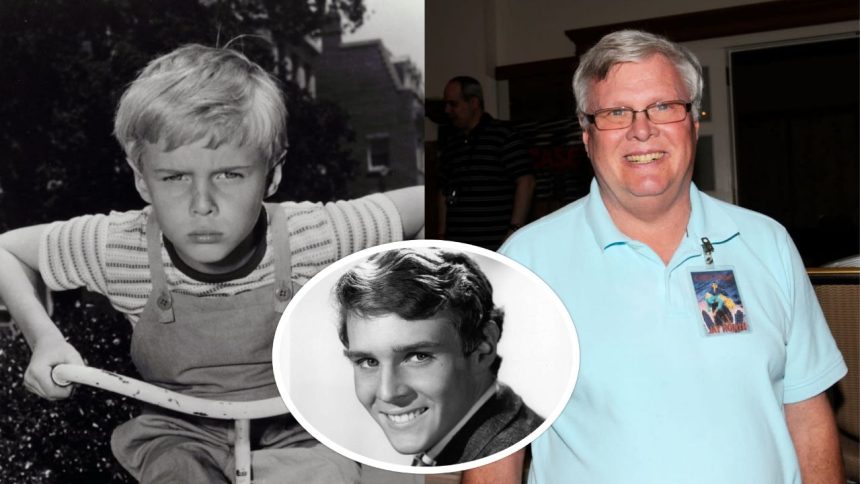Jay North, the actor who brought the mischievous Dennis Mitchell to life in the classic 1959-1963 sitcom Dennis the Menace, left behind a net worth of $500,000 at the time of his death on April 6, 2025. That number might seem modest compared to today’s A-list celebrities, but North’s story wasn’t just about money, it was a rollercoaster of early fame, personal struggles, and reinvention.
Born on August 3, 1951, in Hollywood, California, North’s journey began when he begged his mother to get him on The Engineer Bill Show (also known as Cartoon Express), a children’s program where kids participated as a live audience. His charm caught the eye of talent agent Hazel MacMillan, and by age 7, he’d beaten hundreds of other boys to land the role of Dennis, earning $500 per episode. For four seasons, North’s gap-toothed grin and chaotic antics made him a household name, but behind the scenes, his childhood was far from idyllic.
Inside Jay North’s Modest $500,000 Net Worth as of 2025
While his mother, Dorothy North, worked as a secretary and carefully managed his earnings, never living off them herself, North’s aunt and uncle, who served as his on-set guardians, subjected him to physical and emotional abuse. He later revealed that mistakes on set led to slaps, spankings, or verbal lashings, and he was often isolated from the cast, confined to his dressing room.

The pressure to be perfect, coupled with the show’s cancellation in 1963, left him struggling to adjust. He enrolled in prep school but felt out of place, later admitting, “Between the pressures of the business and Joe’s dying, I became very serious, very morbid, and very withdrawn from the world. I was the antithesis of the little kid that I played on the television show.” The “Joe” he referred to was Joseph Kearns, the actor who played Mr. Wilson and whose death in 1962 deeply affected him.
After Dennis the Menace, North fought against typecasting, landing roles like the adventurous teen in Maya (1966) and its short-lived TV spinoff. He also voiced Prince Turhan in The Banana Splits Adventure Hour and Bamm-Bamm Rubble in The Pebbles and Bamm-Bamm Show. But Hollywood’s fickle nature took its toll. By 1977, disillusioned, he enlisted in the U.S. Navy, serving until his honorable discharge in 1979. Returning to acting briefly, he took minor roles in soap operas and TV films, but his final starring role was in the 1974 thriller The Teacher.
By the 1980s, he’d stepped away for good, later joking in a darkly satirical 1987 Not Necessarily the News sketch where he played a vengeful version of himself, still clad in Dennis’s striped shirt and overalls, raging against the industry that forgot him.
North’s personal life was as tumultuous as his career. He married three times: first to Kathleen Brucher in 1973 (divorced within a year), then to Rositia North in 1991 (separated after three months), and finally to Cindy Hackney in 1993. Hackney, whom he met at a charity event, became his anchor. They moved to her hometown of Lake Butler, Florida, where North worked as a correctional officer for the Florida Department of Corrections for 20 years.
He also became a stepfather to Hackney’s three daughters, embracing a quiet life far from Hollywood’s glare. Though he occasionally appeared at fan conventions or documentaries, he mostly stayed out of the spotlight, reflecting in 2017, “I get a very warm feeling that I still have fans from all over the world. Fans that remember and have warm memories of our show.”

North’s final years were marked by a private battle with colon cancer, a diagnosis he kept quiet until his death at 73. His longtime friends, Lassie star Jon Provost and historian Laurie Jacobson, shared the news on Facebook, writing, “Our dear friend Jay North has been fighting cancer for a number of years, and this morning at noon EST, Jay passed peacefully at home.” They praised his perseverance, adding, “He had a heart as big as a mountain, loved his friends deeply. He called us frequently and ended every conversation with ‘I love you with all my heart.’”
The $500,000 net worth he accumulated, a mix of residual earnings, later roles, and his corrections career, was a credit to his talent and determination in the face of adversity, but his real legacy was the hard-won peace he found after decades of turmoil.



